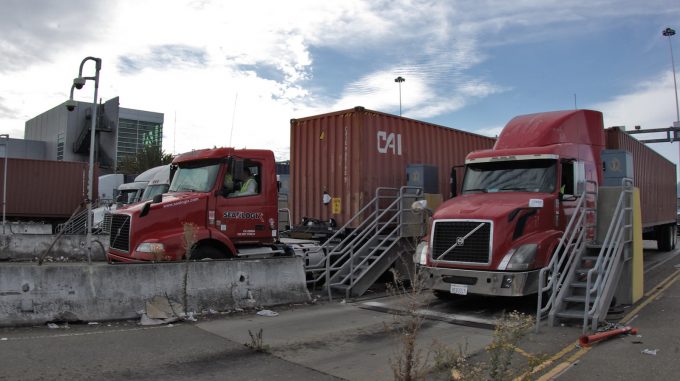State funding of $1.5bn allocated to Californian port improvement projects
California has announced state funding of more than $1.5bn for 15 port projects to bolster ...

The US government is to provide funds for a ‘pop-up port’ project, aimed at improving the flow of agricultural exports from the country.
US Department of Agriculture (USDA) secretary Tom Vilsack made the announcement the day before the American Farm Bureau Federation (AFBF) and more than 100 agricultural organisations urged the Senate to expedite the Ocean Shipping Reform Bill, passed by the House of Representatives in December, which aims to address “unreasonable ocean carrier practices that are undermining US export competitiveness.”
In a ...
'Disastrous' DSV-Schenker merger would 'disrupt European haulage market'
'Chaos after chaos' coming from de minimis changes and more tariffs
List of blanked transpac sailings grows as trade war heats up and demand cools
Shippers in Asia restart ocean shipment bookings – but not from China
India withdraws access for Bangladesh transhipments, in 'very harmful' decision
'Tariff hell' leaves industries in limbo – 'not a great environment to plan'
Asian exporters scramble for ships and boxes to beat 90-day tariff pause
Temporary tariff relief brings on early transpacific peak season
Pre-tariff rush of goods from US to China sees air rates soar, but not for long
De minimis-induced ecommerce demand slump could cripple freighter operators
Forwarders 'allowing the fox into the chicken run' by supporting 'hungry' carriers
Hapag 'took the bigger risk' when it signed up to Gemini, says Maersk
'Restoring America's maritime dominance' – stop laughing at the back of the class
Navigating tariffs: 'like trying to solve a Rubik's cube while colour-blind'
Marginal gains on east-west ocean container routes in a challenging week

Comment on this article